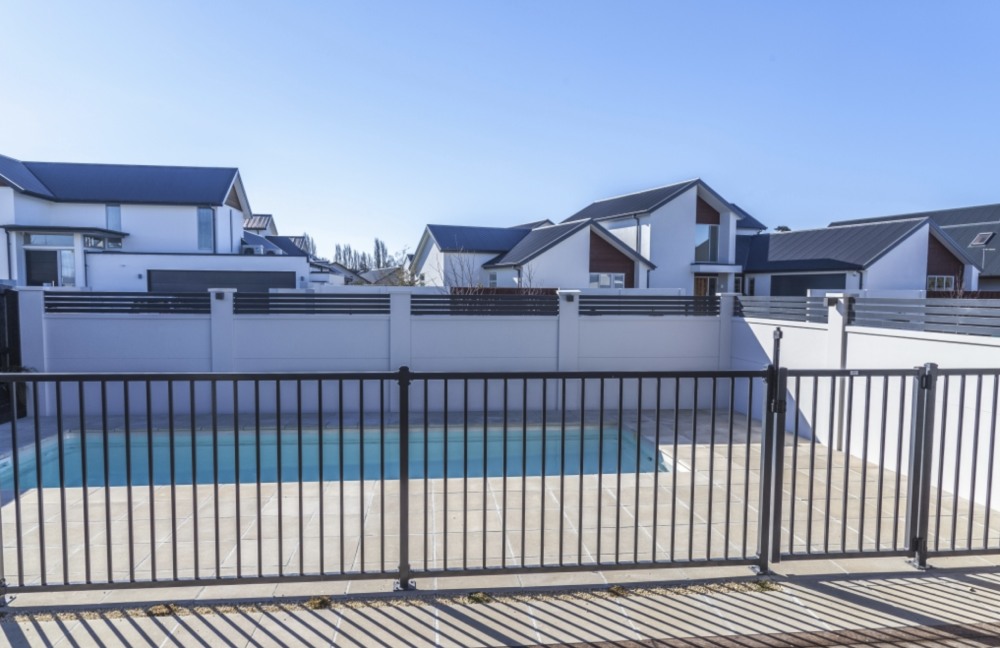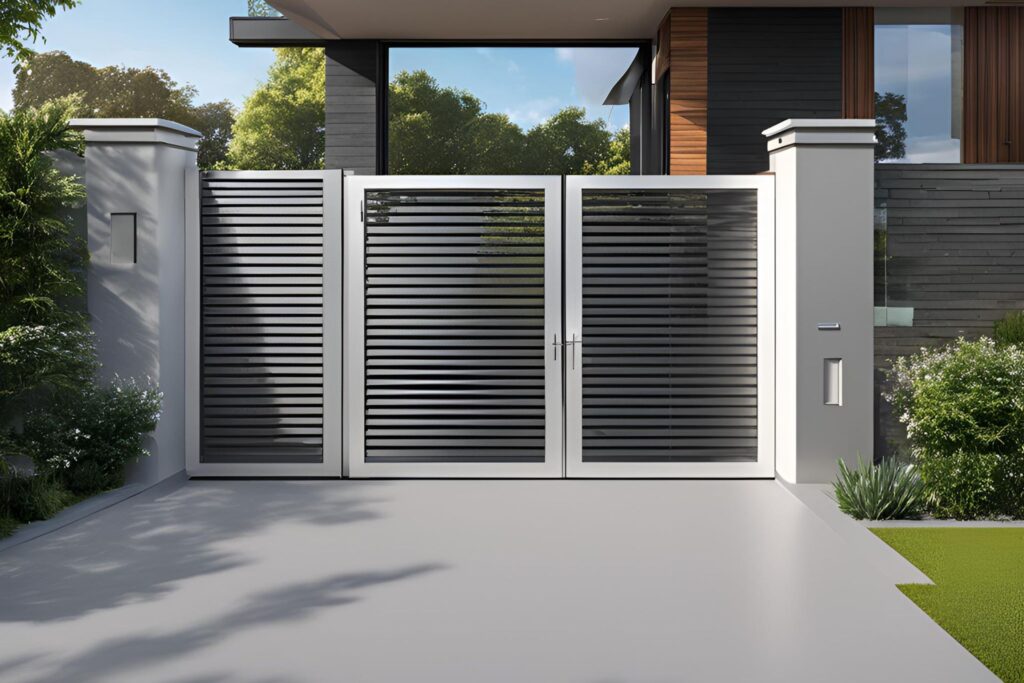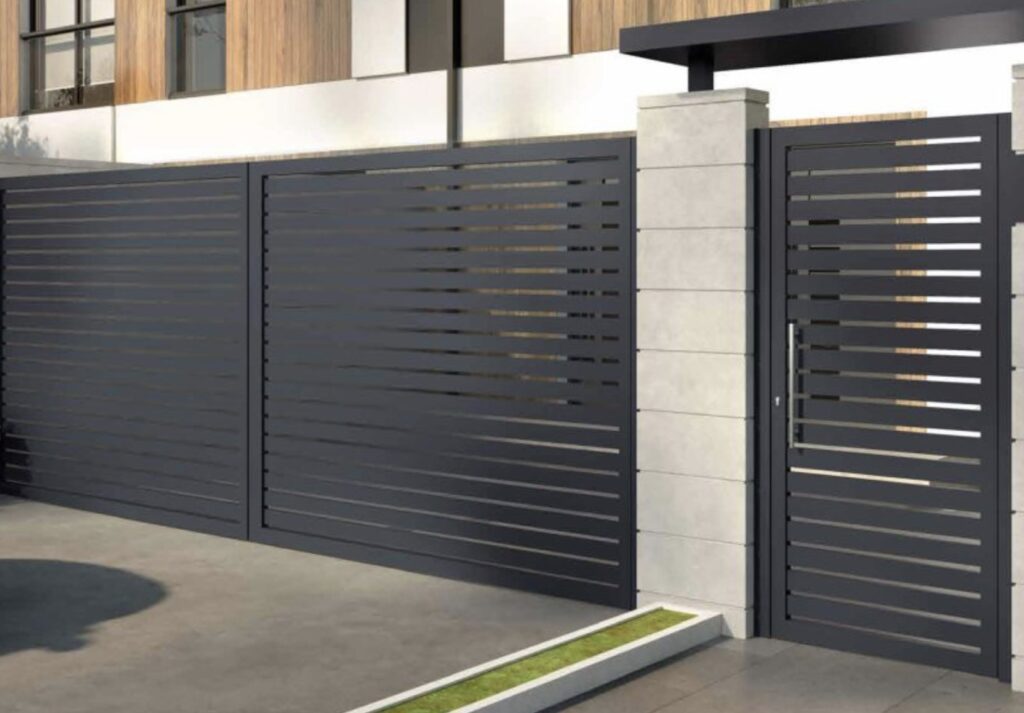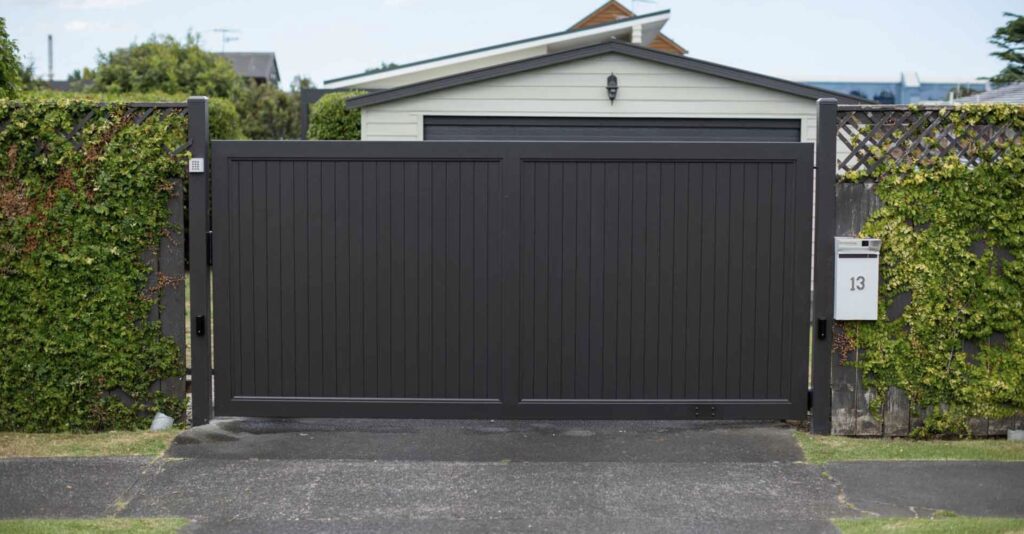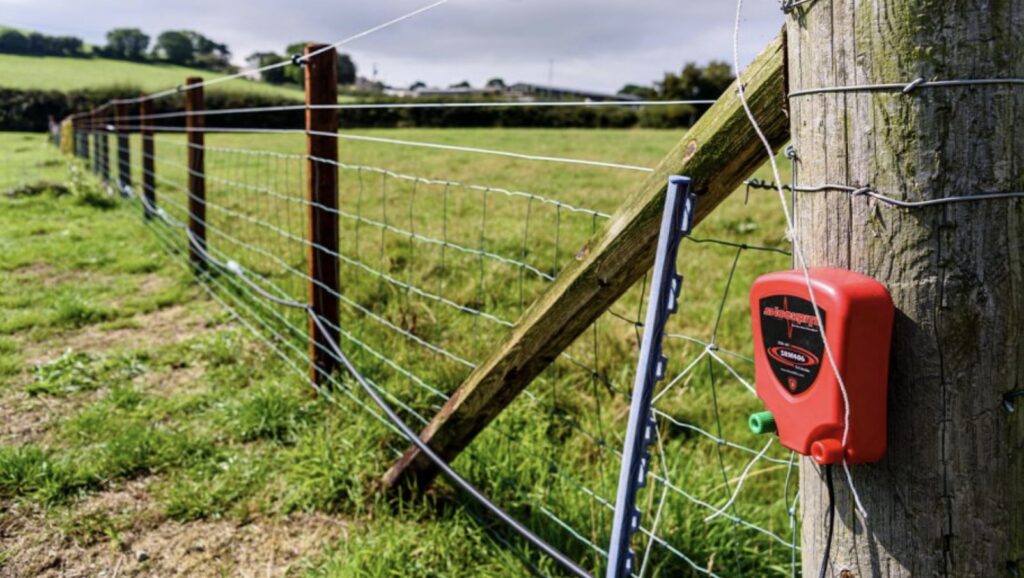Aluminium pool fencing is a popular choice among homeowners in New Zealand due to its durability, low maintenance, and sleek appearance. However, the cost of aluminium pool fencing per metre can vary depending on several factors. This article will provide an overview of the cost factors of aluminium pool fencing in New Zealand and what homeowners can expect to pay.
Understanding the cost factors of aluminium pool fencing is crucial for homeowners who are planning to install a fence around their pool. The cost per metre of aluminium pool fencing can vary depending on the height, style, and colour of the fence, as well as the complexity of the installation and any additional features such as gates or self-closing hinges. Homeowners should also consider the cost of maintenance and any warranty or after-sales service provided by the manufacturer or installer. By understanding these factors, homeowners can make an informed decision and choose the best aluminium pool fencing option that fits their budget and needs.
Key Takeaways
- The cost of aluminium pool fencing per metre in New Zealand can vary depending on several factors such as height, style, colour, and installation complexity.
- Homeowners should also consider the cost of maintenance and any warranty or after-sales service provided by the manufacturer or installer.
- By understanding the cost factors of aluminium pool fencing, homeowners can make an informed decision and choose the best option that fits their budget and needs.
Understanding Aluminium Pool Fencing
Aluminium pool fencing is a popular choice for homeowners in New Zealand. It is a durable and lightweight option that provides excellent strength and security for your pool area. Aluminium fencing is also low maintenance, making it an attractive choice for those who want a hassle-free option.
Aluminium pool fencing is constructed from long-lasting, rust-free aluminium that is strong yet light and easy to transport. It is also easy to install, which means that you can have your pool area secured in no time. The vertical spacing of the panels is typically around 75mm, which ensures that children cannot climb through or get stuck in the fence.
One of the main benefits of aluminium pool fencing is its durability. Aluminium is resistant to corrosion, which means that it will last for many years without deteriorating. It is also resistant to UV rays, which means that it will not fade or crack over time. This makes it an excellent choice for the harsh New Zealand climate.
Another benefit of aluminium pool fencing is its strength. Aluminium is a strong material that can withstand impact and pressure. This means that it will provide excellent security for your pool area, keeping children and pets safe. Aluminium pool fencing is also resistant to bending and warping, which means that it will maintain its shape over time.
In terms of cost, aluminium pool fencing is an affordable option. The cost per metre of aluminium pool fencing in New Zealand varies depending on the supplier and the quality of the product. However, on average, you can expect to pay around $100-$150 per metre for aluminium pool fencing. This makes it a cost-effective option for those who want a secure and durable pool area.
Overall, aluminium pool fencing is an excellent choice for homeowners who want a durable, lightweight, and low maintenance option that provides excellent strength and security for their pool area. With its resistance to corrosion and UV rays, aluminium pool fencing is a long-lasting and cost-effective option that will provide peace of mind for many years to come.
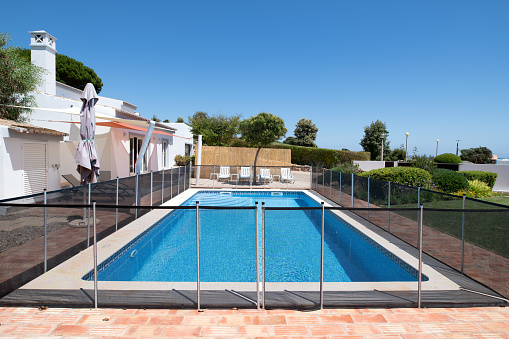
Safety Standards in New Zealand
NZBC Clause F9 and Building Act
In New Zealand, the safety of residential swimming pools is regulated by the NZBC Clause F9, which was introduced as part of the Building (Pools) Amendment Act 2016. The clause sets out specific requirements for restricting access to residential pools to prevent young children from drowning.
Under NZBC Clause F9, any residential pool that is capable of containing water to a depth of 400mm or more must have a physical barrier that restricts access by young children. This includes swimming pools, spa pools, and hot tubs. The barrier must be at least 1.2 metres high and have no gaps or openings that would allow a child to crawl through or climb over.
In addition to the height and design requirements, the barrier must also meet specific strength and durability standards. The materials used to construct the barrier must be able to withstand the impact of a child falling against it and must not deteriorate over time.
The Building Act 2004 also includes provisions for pool safety, including the requirement for regular inspections of pool barriers. Under the Act, territorial authorities have the power to issue notices to fix and infringement notices to ensure that pool owners comply with the safety requirements.
It is important for pool owners to ensure that their pool barriers meet the NZBC Clause F9 and Building Act requirements to prevent accidents and ensure the safety of young children. Failure to comply with these regulations can result in fines and legal action.
Components of Aluminium Pool Fencing
Aluminium pool fencing is a popular choice for homeowners in New Zealand due to its durability, low maintenance, and sleek appearance. The cost of aluminium pool fencing per metre in New Zealand can vary depending on various factors such as the height of the fence, the design, and the installation costs. In this section, we will discuss the components of aluminium pool fencing and their features.
Fence Panels
Aluminium fence panels are the primary component of an aluminium pool fence. They are available in different heights, ranging from 900mm to 1800mm. The panels are constructed using high-quality aluminium, which is lightweight and durable. The panels are powder-coated to provide a sleek and modern appearance and to protect them from corrosion and rust.
Aluminium pool fence panels are available in different styles, including flat top, loop top, and rod top. Flat top panels are the most common and popular style, providing a clean and modern look. Loop top panels have a decorative loop at the top, while rod top panels have vertical rods instead of horizontal rails.
Gates
Aluminium pool fence gates are another essential component of an aluminium pool fence. They are available in different sizes and styles to match the fence panels. Aluminium pool fence gates are self-closing, which means they will automatically close and latch when released. This feature is essential for safety and to comply with New Zealand pool safety regulations.
Aluminium pool fence gates come with self-closing hinges, which are made of high-quality aluminium. The hinges are adjustable, allowing for easy installation and adjustment of the gate’s closing speed and force. The hinges are also rust-resistant and durable, ensuring long-lasting performance.
In conclusion, aluminium pool fencing is a popular choice for homeowners in New Zealand due to its durability, low maintenance, and sleek appearance. The primary components of an aluminium pool fence are fence panels and gates, which are available in different sizes and styles to match the pool area’s design. Aluminium pool fence panels are powder-coated to provide a sleek and modern appearance and to protect them from corrosion and rust, while aluminium pool fence gates are self-closing and come with adjustable self-closing hinges.
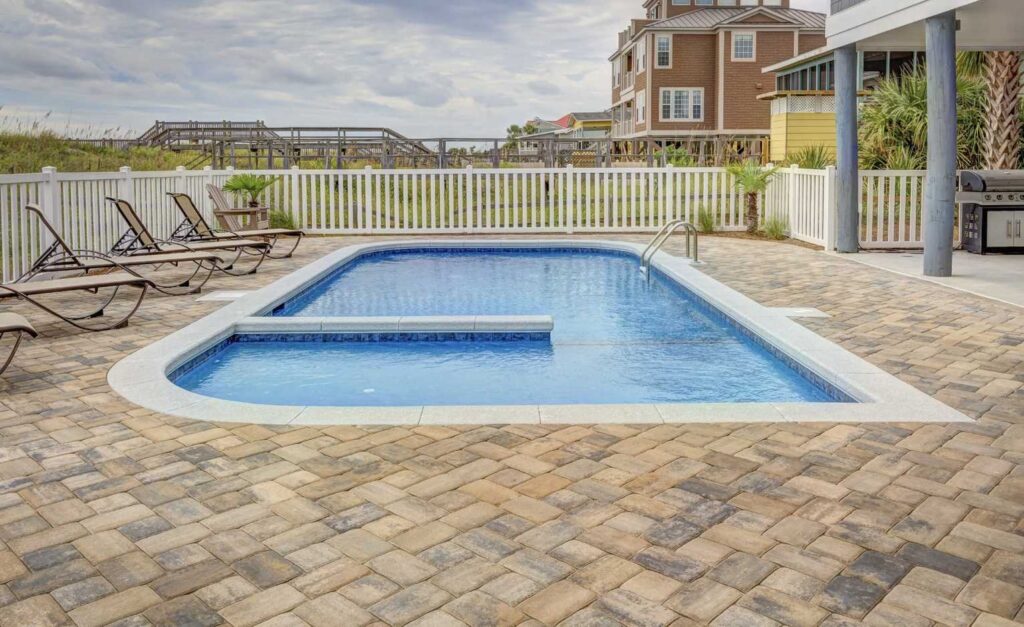
Cost Factors of Aluminium Pool Fencing
Aluminium pool fencing is a popular choice for homeowners in New Zealand due to its durability, low maintenance requirements, and aesthetic appeal. However, the cost of aluminium pool fencing can vary depending on several factors. In this section, we will discuss some of the cost factors of aluminium pool fencing in New Zealand.
Material
The material used for the pool fencing is one of the most significant factors affecting the cost. Aluminium is a popular choice due to its durability, but it is not the only option. Other materials such as glass and steel are also used for pool fencing. Glass pool fencing is more expensive than aluminium, while steel is typically cheaper.
Size and Design
The size and design of the pool fencing also affect the cost. The larger the pool area, the more materials will be required, which will increase the cost. Similarly, more intricate designs will also increase the cost. Standard flat top pool fencing is the most affordable option, while more decorative designs with curved or twisted pickets will cost more.
Professional Installation
Professional installation is also a significant cost factor when it comes to aluminium pool fencing. While some homeowners may choose to install the fencing themselves to save money, it is often recommended to hire a professional to ensure that the installation is done correctly. The cost of professional installation will depend on the complexity of the job and the hourly rate of the installer.
Value
While aluminium pool fencing may seem expensive upfront, it is a valuable investment in the long run. Aluminium is a durable material that can withstand harsh weather conditions and is resistant to rust and corrosion. This means that it will require less maintenance over time and will last longer than other materials, making it a cost-effective option in the long run.
In summary, the cost of aluminium pool fencing in New Zealand will depend on several factors such as material, size and design, professional installation, and value. Homeowners should consider these factors when choosing the type of pool fencing that best suits their needs and budget.
Installation and Maintenance
Aluminium pool fencing is a popular choice for many New Zealanders because it is easy to install and requires low maintenance. The installation process is straightforward and can be completed by a professional fencing contractor or a skilled DIY enthusiast.
The first step is to measure the area where the fence will be installed. The measurements will determine the amount of fencing material required for the project. Once the measurements are taken, the next step is to determine the style and design of the fence. Aluminium pool fencing comes in a variety of styles such as flat top, loop top, and rod top.
After selecting the style and design, the fence panels are cut to size and assembled. The panels are then installed using posts that are anchored into the ground. The posts are secured using concrete or another suitable material. The panels are then attached to the posts using screws or other fasteners.
Maintenance for aluminium pool fencing is minimal. The fence should be cleaned regularly to remove dirt and debris. A mild detergent and water can be used to clean the fence. Avoid using abrasive cleaners or scrubbers as they can damage the surface of the fence.
If the fence is damaged, it should be repaired as soon as possible. Small repairs can be done by a homeowner, but larger repairs should be done by a professional fencing contractor. Regular inspections of the fence should be done to ensure that it is in good condition and meets safety standards.
In conclusion, aluminium pool fencing is a popular choice in New Zealand due to its ease of installation and low maintenance requirements. The installation process is straightforward and can be completed by a professional fencing contractor or a skilled DIY enthusiast. Regular maintenance and inspections will ensure that the fence remains in good condition and meets safety standards.
Additional Features
Powder Coat Colours
Aluminium pool fencing can be customized with powder coat colours to match the aesthetic of any backyard. Powder coating is a process where a dry powder is applied to the aluminium and then heated to create a hard, durable surface. This coating is available in a wide range of colours, including standard colours like black, white, and grey, as well as custom colours to match any specific colour scheme.
The cost of powder coating varies depending on the colour and the size of the fence. Custom colours will typically be more expensive than standard colours. HomePlus NZ offers custom powder coat colours available on order, while Stratco NZ offers a range of standard colours.
Joinery
Joinery refers to the way the different parts of the fence are connected. Aluminium pool fencing can be joined together using either mechanical or welded joinery. Mechanical joinery involves using screws or other fasteners to connect the pieces of the fence, while welded joinery involves welding the pieces together.
Mechanical joinery is typically less expensive than welded joinery, but it may not be as strong or durable. Welded joinery is generally considered to be more secure and long-lasting, but it may be more expensive.
Guardian Fencing offers both mechanical and welded joinery options for their aluminium pool fencing. Sanctuary Fences & Gates uses welded joinery for their pool fences, while HomePlus NZ uses mechanical joinery.
Overall, the choice between powder coat colours and joinery will depend on personal preference and budget. It is important to consider the durability and maintenance requirements of each option before making a decision.
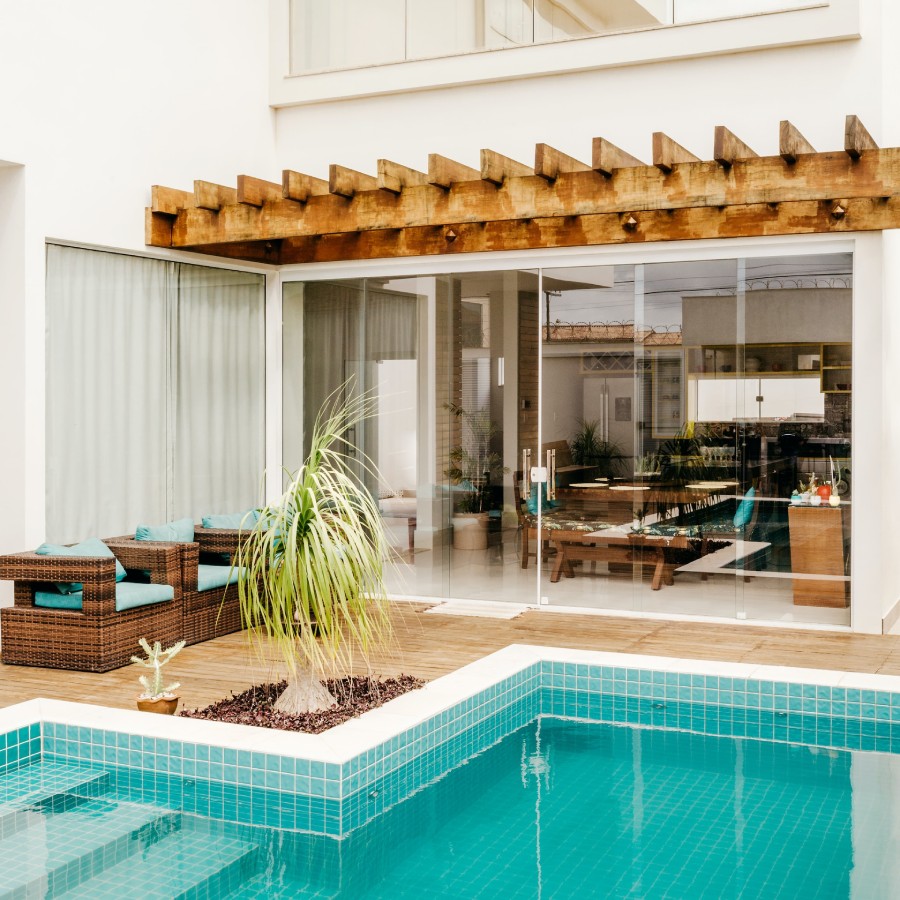
Warranty and After-Sales Service
When it comes to purchasing aluminium pool fencing in New Zealand, it’s important to consider the warranty and after-sales service offered by the supplier. A good warranty provides peace of mind and ensures that any issues that arise with the product will be dealt with promptly and professionally.
Most reputable aluminium pool fencing suppliers in New Zealand offer a warranty on their products. The length of the warranty can vary depending on the supplier and the type of fencing being purchased. Some suppliers offer a 10-year warranty, while others may offer a lifetime warranty.
It’s important to carefully read the warranty terms and conditions before making a purchase. The warranty should cover defects in materials and workmanship, as well as any damage caused during shipping or installation. However, it’s important to note that the warranty may not cover damage caused by misuse or improper installation.
In addition to the warranty, it’s important to consider the after-sales service offered by the supplier. This includes customer support, technical assistance, and repair services. A good supplier should be responsive to customer inquiries and provide timely and effective solutions to any issues that arise.
When choosing an aluminium pool fencing supplier, it’s important to consider their reputation for customer service and after-sales support. Look for a supplier that has a proven track record of providing high-quality products and excellent customer service.
Overall, a good warranty and after-sales service are important factors to consider when purchasing aluminium pool fencing in New Zealand. By choosing a reputable supplier with a strong warranty and after-sales support, you can ensure that your investment is protected and that you’ll receive the support you need if any issues arise.
Conclusion
Aluminium pool fencing is a popular choice for many homeowners in New Zealand due to its durability, low maintenance, and aesthetic appeal. It is a cost-effective option that offers numerous styles and designs to choose from, making it an attractive alternative to traditional timber, wrought iron, or steel fences.
When it comes to the cost of aluminium pool fencing, it is important to consider the factors that affect the overall price. These include the size of the area to be fenced, the style and design of the fence, and the quality of materials used.
Based on the research conducted, the average cost of aluminium pool fencing in New Zealand ranges from $200 to $600 per metre. This price includes the cost of materials, installation, and labour. However, prices may vary depending on the specific requirements of the project.
It is recommended to obtain quotes from multiple contractors to compare prices and ensure that you are getting a fair price for your project. Additionally, it is important to choose a reputable contractor with experience in installing aluminium pool fencing to ensure that your fence is installed correctly and meets all safety standards.
Overall, aluminium pool fencing is a great option for homeowners looking for a durable, low maintenance, and stylish fence to surround their pool area. With proper research and planning, it is possible to find a cost-effective solution that meets your specific needs and budget.
Frequently Asked Questions
What is the average cost of aluminium pool fencing per metre in New Zealand?
The average cost of aluminium pool fencing in New Zealand ranges from $150 to $600 per metre. The cost varies depending on the quality of the fencing, the size of the pool, and the complexity of the installation.
How does the cost of aluminium pool fencing compare to PVC or colour steel fencing in NZ?
Aluminium pool fencing is generally more expensive than PVC or colour steel fencing in New Zealand. However, aluminium fencing is more durable and requires less maintenance than other types of fencing.
What are some of the cheapest options for fencing in New Zealand?
Some of the cheapest options for fencing in New Zealand include PVC and timber fencing. However, these types of fencing may not be suitable for pool areas due to safety regulations.
How much does pool fencing cost at Mitre 10 in New Zealand?
The cost of pool fencing at Mitre 10 in New Zealand varies depending on the type and quality of the fencing. Aluminium pool fencing at Mitre 10 can cost anywhere from $150 to $400 per metre.
What is the cost of corrugated iron fencing in New Zealand?
The cost of corrugated iron fencing in New Zealand ranges from $50 to $150 per metre. However, corrugated iron fencing may not be suitable for pool areas due to safety regulations.
What factors affect the cost of aluminium pool fencing installation in New Zealand?
Several factors can affect the cost of aluminium pool fencing installation in New Zealand, including the size of the pool, the quality of the fencing, the complexity of the installation, and the location of the property. Additional costs may include excavation, levelling, and removal of existing fencing.
About the Author:
Mike Veail is a recognized digital marketing expert with over 6 years of experience in helping tradespeople and small businesses thrive online. A former quantity surveyor, Mike combines deep industry knowledge with hands-on expertise in SEO and Google Ads. His marketing strategies are tailored to the specific needs of the trades sector, helping businesses increase visibility and generate more leads through proven, ethical methods.
Mike has successfully partnered with numerous companies, establishing a track record of delivering measurable results. His work has been featured across various platforms that showcase his expertise in lead generation and online marketing for the trades sector.
Learn more about Mike's experience and services at https://theleadguy.online or follow him on social media:

